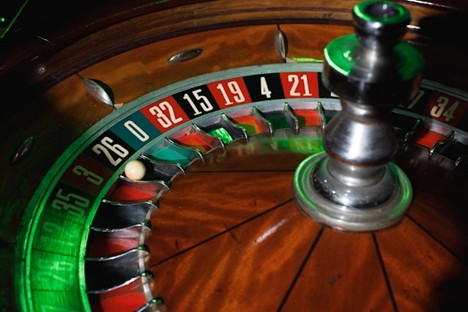
New England has long been a region where history and innovation intersect, and the evolution of gaming has played a notable role in shaping its cultural landscape. From the earliest social gatherings to the emergence of formal establishments like the modern casino, gaming has influenced local customs, entertainment, and community interactions. Over the decades, games of chance and skill have not only provided recreation but have also contributed to the social fabric, reflecting broader societal trends and the region’s distinctive character. Exploring this history reveals how gaming has become intertwined with New England’s identity, leaving a lasting mark on its arts, leisure, and communal traditions.
In the 17th and 18th centuries, New England settlers brought with them European recreational practices that included various forms of gaming. Dice games, card games, and board games were common pastimes, providing an opportunity for socialization and relaxation amidst the demands of daily life in colonial towns. These games were often played in taverns, private homes, or community halls, serving as venues for both entertainment and civic gatherings.
Interestingly, early authorities frequently grappled with the moral implications of gaming. While some forms were accepted as wholesome recreation, others were viewed with suspicion, often associated with vice and gambling. Despite these challenges, games persisted, and over time, they became an integral part of community life. Through storytelling, folk songs, and local traditions, these early gaming practices left an enduring imprint on the cultural narrative of New England.
The 1800s marked a period of diversification in gaming, particularly as New England towns grew and industrialization transformed daily life. Parlor games became increasingly popular among middle- and upper-class families, offering structured entertainment that emphasized strategy, skill, and social interaction. Games like chess, checkers, and whist not only provided amusement but also reflected societal values, including patience, strategy, and mental acuity.
Simultaneously, organized competitions began to emerge, particularly in urban centers. Horse racing, lotteries, and informal betting circuits became common, reflecting both the recreational and economic dimensions of gaming. These activities often drew large crowds, fostering a sense of community and shared excitement. In this way, gaming in the 19th century was not merely a pastime; it served as a cultural touchstone that brought together diverse segments of society, bridging generational and socioeconomic gaps.
The early 20th century saw the professionalization of gaming spaces, transforming casual play into structured entertainment environments. While prohibition and strict regulations limited certain forms of gambling, New Englanders found innovative ways to engage with games of chance and skill. Establishments offering card tournaments, bingo, and other recreational activities gained popularity, reflecting a growing appetite for organized gaming experiences.
During this period, gaming also intersected with technological innovations. Mechanical slot machines and early gaming devices introduced a new layer of excitement and accessibility. These developments not only altered how people played games but also expanded the audience for gaming, appealing to both local residents and travelers seeking leisure. Over time, these venues became more than just recreational hubs—they served as social spaces where communities connected, celebrated, and even debated the role of gaming in society.
Gaming’s impact extended well beyond recreational spaces, leaving a lasting imprint on New England’s arts and entertainment scene. Literature, theater, and visual arts frequently depicted games of chance, reflecting both fascination and critique. Card games, dice, and competitive play appeared in paintings, novels, and plays, serving as metaphors for fate, risk, and human ambition.
Music and dance were also influenced by gaming culture. Community events often combined game play with musical performances, dances, and storytelling. These gatherings reinforced social cohesion while providing opportunities for creativity and expression. By embedding gaming into cultural production, New England communities not only entertained themselves but also documented and celebrated their unique traditions for future generations.

One of the most significant contributions of gaming to New England culture has been its role in fostering social bonds. Gaming spaces, whether informal parlor gatherings or organized tournaments, encouraged interaction across social boundaries. Residents of different ages, professions, and backgrounds could come together, engage in friendly competition, and share in collective excitement.
This social dimension of gaming has continued into contemporary times. Local tournaments, game nights, and skill-based competitions create venues for networking, mentorship, and community building. By promoting interaction, collaboration, and healthy competition, gaming has become an enduring platform for social cohesion in New England communities.
While primarily a cultural phenomenon, gaming has also contributed to regional economies. Historical gaming events drew visitors from neighboring towns, boosting local commerce. Artisans, food vendors, and lodging providers benefited from the influx of participants and spectators, creating a symbiotic relationship between recreation and economic vitality.
In modern contexts, events that feature strategic games, tournaments, and skill-based competitions continue to attract tourists, reinforcing New England’s identity as a destination for cultural and recreational experiences. These activities highlight how gaming, beyond its entertainment value, can support local economies and encourage broader engagement with the region’s heritage.
Today, New England continues to embrace a diverse gaming culture that spans traditional card and board games, tabletop role-playing, and digital gaming experiences. Communities host tournaments, conventions, and festivals that celebrate strategy, skill, and creativity, ensuring that the region’s rich gaming heritage remains vibrant.
Educational institutions have even incorporated games into curricula, using them to teach probability, strategy, and critical thinking. This integration of gaming into learning environments underscores the enduring relevance of games as tools for intellectual growth, social engagement, and cultural continuity.
The history of gaming in New England is more than a chronicle of recreational activities, it is a reflection of the region’s evolving culture, values, and social structures. From colonial parlor games to modern skill-based competitions, gaming has shaped communal life, inspired artistic expression, and fostered economic and social vitality. Its cultural influence resonates today, connecting generations through shared experiences and a love of play. By examining the trajectory of gaming in New England, we gain insight into how leisure activities can leave a lasting imprint on identity, tradition, and community life.